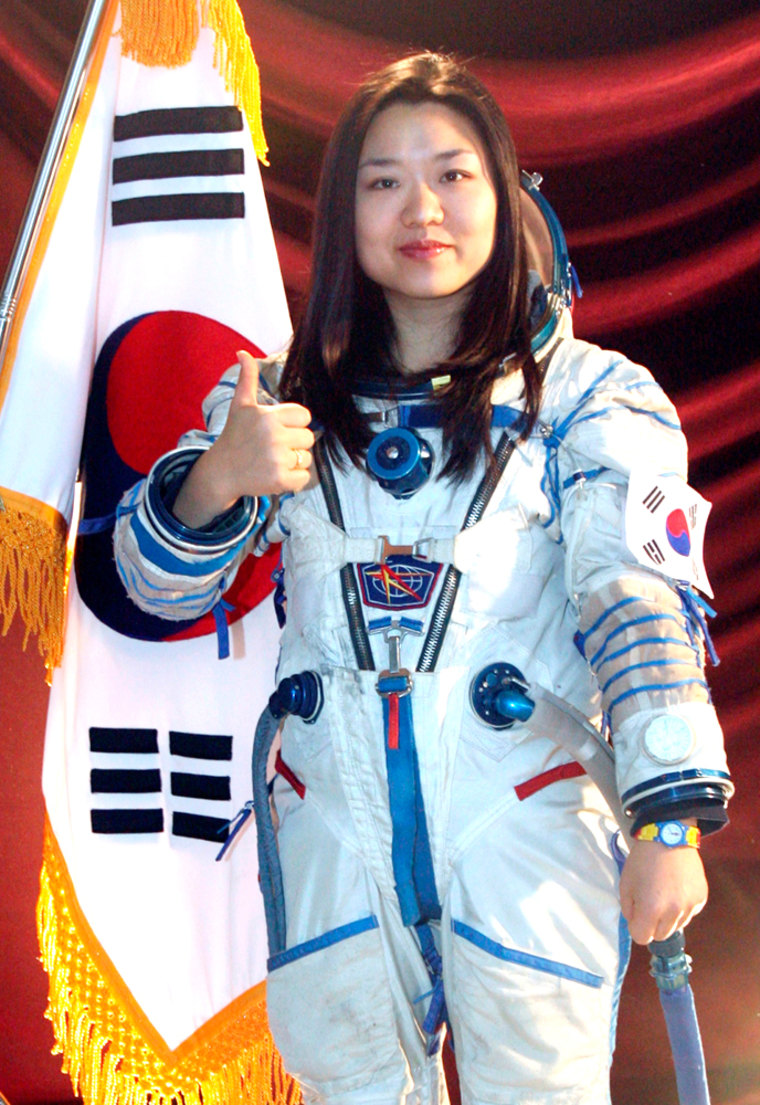A South Korean artificial intelligence expert lost the chance to be his country's first citizen in outer space after unauthorized reading and removal of manuals from Russia's cosmonaut training center, the government said Monday.
Instead, a woman bioengineer will conduct scientific experiments on a Russian voyage to the international space station next month, the country's Ministry of Education, Science and Technology said.
Russia's Federal Space Agency asked for the change last month, saying Ko San, the original choice, repeatedly violated regulations at the training center near Moscow, Lee Sang-mok, a senior ministry official, told a news conference.
Yi So-yeon, a 29-year-old with a doctorate in bioengineering, was originally South Korea's second choice for the mission.
Russian authorities said Ko took his training manual out of the center without permission and sent it to his home in South Korea in September, Lee said. Ko later returned the manual, explaining he accidentally sent it home together with other personal belongings, Lee added.
In February, Ko again ran afoul of the rules by getting what was believed to be a manual used by space pilots from the center through a Russian colleague — material he was not supposed to read, Lee said.
"The Russian space agency has stressed that a minor mistake and disobedience can cause serious consequences," Lee told reporters.
Lee said he believed the materials in question were not classified.
The state-run Korea Aerospace Research Institute — which employs Ko — has rebuked him, both verbally and in writing, Lee said.
The institute offered an apology to Russia both times, since Ko had signed the center's instructions on the rules, he said. The institute has no plan to take further disciplinary measures, Lee said.
Anatoly Perminov, chief of the space agency, said in a statement on its Web site Monday that the change was because Ko "violated the code of conduct for cosmonauts," adding that the substitution would cause no complications for the mission.
Yi is scheduled to work aboard the space station for about 10 days with five other cosmonauts including one female American astronaut, conducting scientific experiments, according to a statement from Lee's ministry.
The Soyuz spacecraft is scheduled to lift off from a space center in Baikonur, Kazakhstan, on April 8, the statement said.
The 31-year-old Ko will remain at the training center in Star City near Moscow and train with Yi, Lee said.
Under a space center rule, Yi can be "theoretically" replaced with Ko up to six hours before blast off, Lee said, though he added such a scenario was highly unlikely.
Yi, also employed by the Korea Aerospace Research Institute, earned both bachelor's and master's degrees in mechanical engineering at the state-run Korea Advanced Institute of Science and Technology, according to the ministry. In February, she received her Ph.D. from the same school.
The mission will make South Korea the world's 36th country to send an astronaut into space, said ministry official Kim Ki-seok.
A total of 48 women from the United States, Russia and four other countries have so far gone into space, the ministry said.
South Korea plans to complete its first space center by the end of next year as part of a program to lay the technological and scientific groundwork for space exploration in coming decades.
Since 1992, South Korea has had 11 satellites launched, mostly for space and ocean observation and communications.
